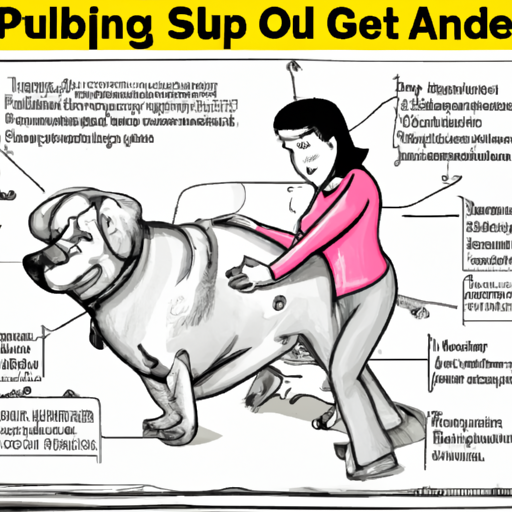Understanding Canine Bloat
Bloat, medically known as gastric dilatation-volvulus (GDV), is a serious condition that can afflict our four-legged friends. It occurs when your dog’s stomach fills with gas and possibly twists, causing severe discomfort and potentially life-threatening complications.
Recognizing the signs of bloat in its early stages can significantly increase your dog’s chances of survival. Signs to look out for include:
– Restlessness or pacing
– Distended abdomen
– Attempted but unsuccessful vomiting
– Excessive drooling
– Rapid or shallow breathing
Immediate Steps to Take if You Suspect Bloat
When you notice these alarming signs, time is of the essence. Here’s what you need to do:
- Stay Calm: Your anxiety can transfer to your dog, exacerbating the situation.
- Contact a Vet: This is not a condition that you can treat at home, so get to the vet immediately.
- Transport Safely: Use a blanket to lift your dog into the car to avoid further distress.
Treatment Options for Canine Bloat
Veterinary intervention is the only way to treat bloat. Here’s what you might expect:
- Decompression: The vet may insert a tube or needle into the stomach to release the built-up gas.
- Surgery: If the stomach has twisted, surgery could be necessary to correct it.
- Aftercare: Post-operative care is critical, including dietary changes and rest.
These procedures can be costly, but they are necessary to save your dog’s life.
Preventing Bloat in Dogs
While certain breeds are more susceptible to bloat, there are steps you can take to reduce the likelihood of this condition:
- Feed your dog smaller, more frequent meals.
- Avoid vigorous exercise immediately before and after meals.
- Discourage rapid eating by using a slow-feed bowl.
- Keep a close eye on your dog’s behavior and physical condition.
| Tips for Prevention | Description |
|---|---|
| Small Meals | Feed your dog small portions throughout the day, rather than one large meal. |
| Slow Feeding | Use a slow-feed bowl to discourage rapid eating. |
| Monitor Behavior | Watch for signs of discomfort or abnormal behavior after meals. |
Common Questions About Canine Bloat
Q: Are some breeds more susceptible to bloat?
A: Yes, large breeds with deep chests, like Great Danes and German Shepherds, are more prone to bloat.
Q: Can bloat be prevented?
A: While there’s no guaranteed prevention, measures like feeding small meals and avoiding vigorous exercise around mealtime can help.
Q: Is bloat a medical emergency?
A: Absolutely. If you suspect your dog has bloat, get to a vet immediately.
Remember, as a caregiver, your furry friend relies on you for their health and well-being. It’s crucial to stay informed and vigilant about conditions like bloat, so you can take swift action when necessary.



